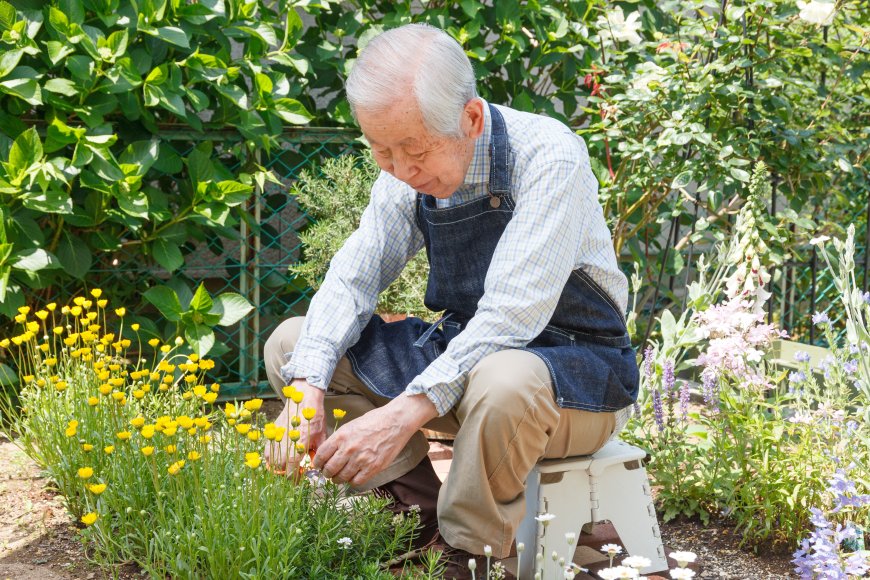The Blue Zones Lifestyle: Secrets to a Longer, Healthier Life from the World’s Oldest People
Discover the secrets of the Blue Zones lifestyle—where people live the longest. Learn how diet, movement, and strong social ties contribute to a healthier, longer life.

What if the secret to living a long, healthy life wasn’t found in medicine but in the way we live every day? The concept of Blue Zones—regions where people live significantly longer than the global average—provides fascinating insights into longevity. These zones include Okinawa (Japan), Sardinia (Italy), Ikaria (Greece), Nicoya (Costa Rica), and Loma Linda (California, USA).
Researchers have studied these communities to uncover what makes their residents live active, fulfilling lives well into their 90s and even beyond 100. The good news? Many of their habits can be adopted by anyone, anywhere.
The 9 Key Lessons from Blue Zones
1. Move Naturally Throughout the Day
People in Blue Zones don’t follow intense workout routines. Instead, they integrate movement naturally into their daily lives—walking, gardening, doing household chores, and working in fields. This consistent, low-intensity physical activity keeps their bodies strong without the risk of overexertion.
???? Lesson: Prioritize walking, cycling, stretching, and other natural movements over long hours of sitting or intense, unsustainable workouts.
2. Eat a Plant-Based Diet with Minimal Processed Foods
One of the strongest commonalities among Blue Zone diets is a heavy reliance on fruits, vegetables, whole grains, nuts, and legumes. Meat is consumed sparingly, often as a side dish rather than the main course.
???? Lesson: Shift towards a more plant-based diet with fiber-rich foods, reducing processed items and excess sugar.
3. Follow the 80% Rule (Hara Hachi Bu)
In Okinawa, people follow the principle of Hara Hachi Bu, meaning they stop eating when they are 80% full. This prevents overeating and helps maintain a healthy weight.
???? Lesson: Eat slowly and mindfully, stopping before feeling completely full.
4. Drink in Moderation (or Not at All)
Most Blue Zone residents consume alcohol moderately—typically one to two glasses of wine per day, often with food and in a social setting. However, some groups, like the Seventh-day Adventists in Loma Linda, abstain from alcohol entirely.
???? Lesson: If you drink, do so in moderation and with meals. Otherwise, prioritize water, herbal teas, or natural beverages.
5. Build Strong Social Connections
Loneliness is a major risk factor for poor health. Blue Zone residents maintain close family bonds, friendships, and community connections, which provide emotional and psychological support.
???? Lesson: Strengthen relationships with family, friends, and community. Prioritize real-world connections over excessive screen time.
6. Have a Sense of Purpose (Ikigai & Plan de Vida)
People in Blue Zones wake up with a clear sense of purpose, known as Ikigai in Japan and Plan de Vida in Costa Rica. This sense of meaning reduces stress and keeps people engaged in life.
???? Lesson: Find a purpose that excites you—whether it’s a career, hobby, volunteer work, or family responsibility.
7. Reduce Stress Through Routines and Rituals
Chronic stress leads to inflammation, which contributes to diseases like heart disease and diabetes. Blue Zone communities have stress-reducing routines such as prayer, naps, meditation, and social gatherings.
???? Lesson: Incorporate daily relaxation habits like deep breathing, meditation, or a simple evening walk.
8. Prioritize Family and Community Over Work
Unlike in fast-paced urban settings, Blue Zone cultures emphasize spending time with family and being part of close-knit communities.
???? Lesson: Balance work with meaningful relationships. Make time for family dinners, celebrations, and shared activities.
9. Have Faith or a Strong Belief System
Most Blue Zone residents belong to faith-based or spiritual communities, which provide emotional support and a sense of belonging. Studies show that people who participate in religious or spiritual activities tend to live longer.
???? Lesson: Whether through religion, spirituality, or philosophy, having a strong belief system can provide comfort and purpose.
Bringing the Blue Zones Lifestyle Into Your Life
Adopting all of these habits overnight isn’t necessary. Start small—perhaps by walking more, eating more plant-based meals, or reconnecting with friends and family. Over time, these small changes can significantly improve health, happiness, and longevity.
Conclusion
The Blue Zones lifestyle is not about strict diets, intense workouts, or expensive health programs. Instead, it’s a holistic approach to living well by focusing on natural movement, healthy eating, social bonds, and a sense of purpose. By making these small but powerful changes, you, too, can increase your chances of a longer and healthier life.
What's Your Reaction?
 Like
0
Like
0
 Dislike
0
Dislike
0
 Love
0
Love
0
 Funny
0
Funny
0
 Angry
0
Angry
0
 Sad
0
Sad
0
 Wow
0
Wow
0



















































